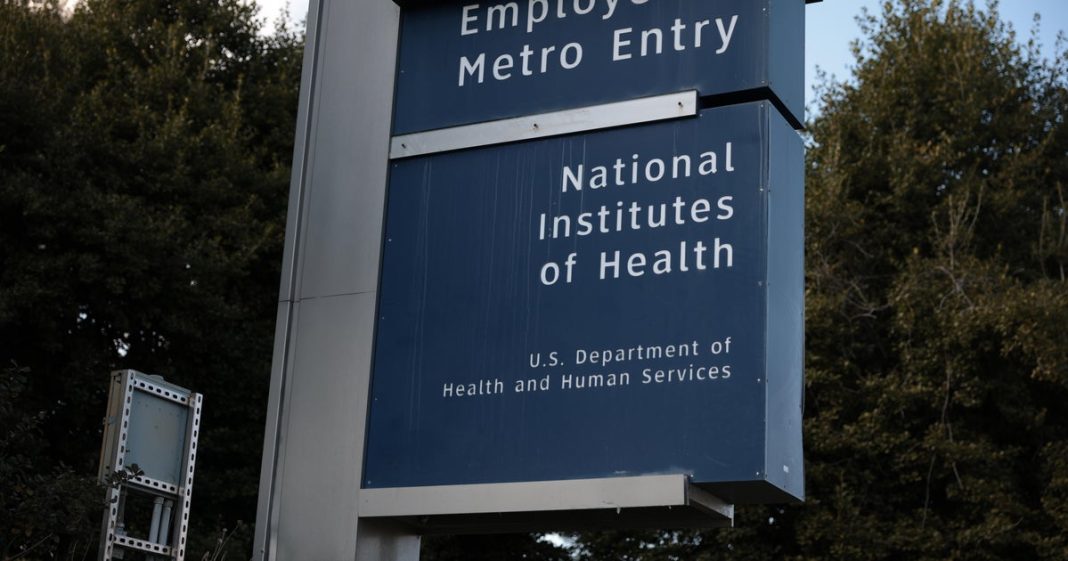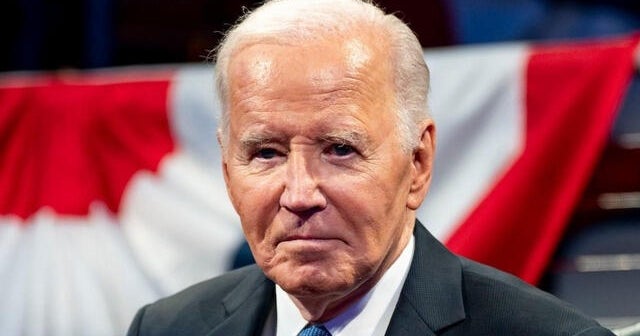Some of the National Institutes of Health‘s top brain scientists received layoff notices last month, weeks before Health and Human Services Secretary Robert F. Kennedy Jr. testified to Congress that no working scientists had been cut from his department.
While the researchers were asked to continue working for a few more weeks in the labs they run at the National Institute of Neurological Disorders and Stroke, multiple sources familiar with the situation say their layoff notices have not been revoked.
“Most people believe we were reinstated because we got back to the office,” one of the scientists, who spoke on the condition of anonymity, told CBS News in a message.
This means they still face termination from the federal government on June 2, alongside the thousands of other workers who were put on leave after Kennedy’s layoffs were announced last month.
“These 11 labs have about 100 staff, mainly young trainees whose careers will be severely disrupted,” one scientist familiar with the situation told CBS News.
News of the Neurological Disorders and Stroke scientists losing their jobs was previously reported by The Transmitter.
The laid-off scientists include Richard Youle. Youle, who has served at the NIH since 1978. He carries the title of distinguished investigator, a designation reserved for the agency’s most preeminent researchers. He was the winner of the $3 million Breakthrough Prize in Life Sciences in 2021 for his research into Parkinson’s disease.
A scientist familiar with Youle’s work, who spoke anonymously fearing retaliation, praised his research as a “fundamentally important” breakthrough for the field. Youle’s results had paved the way for researchers to find new treatments for Parkinson’s disease and other neurodegenerative disorders, the NIH said in its news release.
One source at the NIH said Youle had received four job offers after news of the layoffs broke last month. Three were for positions outside the United States. While Youle has told others that he has no interest in leaving the U.S. for now, the source said it shows that “the world is ready to pounce and take our top scientists if we don’t fix this.”
Ten other senior investigators – Miguel Holmgren, Steve Jacobson, Dorian McGavern, Joseph Mindell, Katherine Roche, Zu-Hang Sheng, David R. Sibley, Kenton Swartz, Susan Wray and Ling-Gang Wu – were also laid off at NINDS, according to records shared with CBS News. A senior associate scientist at NINDS, Silvina Horowitz, got a layoff notice as well, the records show.
Among the scientists who have received major recognition for their work in recent years include Wu, who was selected for a prestigious award in February from the Biophysical Society for his ongoing research on how neurons communicate and function. Sibley was recognized in 2023 by a pharmacology society for “seminal contributions” to understanding dopamine receptors in the brain.
Kennedy had told a Senate health committee hearing on May 14 that the only cuts they had made to date were “administrative cuts.”
“As far as I know, we have not fired any working scientists, the working scientists, the people who are actually doing science. There are some people who were scientists that were doing IT or administration, who did lose their jobs. But in terms of working scientists, our policy was to make sure none of them were lost and that that research continues,” Kennedy said.
NIH Director Dr. Jay Bhattacharya and senior leaders within the department were made aware weeks ago about the layoffs, multiple sources told CBS News. Bhattacharya and others previously said that they were mistakes and would be reversed soon.
Weeks have passed since those assurances were made to the scientists. Multiple sources said the scientists have yet to receive any letters revoking their “reduction in force” or “RIF” notices, or an explanation for why moves to reverse their layoffs never occurred.
That is unlike similar layoffs that were revoked weeks ago at the Food and Drug Administration and Centers for Disease Control and Prevention by the department, which officials completed in the days ahead of Kennedy’s testimony to Capitol Hill.
When asked about the employment status of NIH and NIOSH scientists who received reduction in forces notices, a spokesperson for the department pointed back to Kennedy’s remarks at the Senate hearing about the layoffs.
Kennedy’s claim that no working scientists were fired has drawn disdain in recent days from other laid-off scientists at multiple health agencies beyond the NIH.
For example, while some of the laid-off employees at the National Institute of Occupational Safety and Health were restored ahead of Kennedy’s hearing, researchers in the agency’s Health Effects Laboratory Division remain off the job. The Centers for Disease Control and Prevention also lost many scientists in its National Center for Environmental Health, which had been responsible for an array of work ranging from lead poisonings to to illness outbreaks on cruise ships. CDC labs investigating outbreaks of viral hepatitis and sexually transmitted diseases were also eliminated, after all the scientists were laid off.
“Perhaps he is unaware that his RIFs have gutted scientists and frontline public health workers at CDC, the very people he vowed to protect,” one laid-off CDC official told CBS News.
Some within the NIH said they believed that the scientists would be reinstated after the research agency faced a second round of layoffs, which employees had been told were to compensate for scientists that needed to be reinstated to their positions.
Around 200 employees at the NIH were laid off, including staff at the National Cancer Institute and Office of Research Facilities. Officials said the cuts wiped out multiple teams responsible for contracting work to conduct emergency maintenance around the NIH’s campuses and oversee laboratory safety.
The NIH’s acquisitions office was also gutted by those layoffs, according to an email to lab managers shared with CBS News, leaving the agency’s supply center with “little to no capacity for new work” to obtain supplies for researchers.




